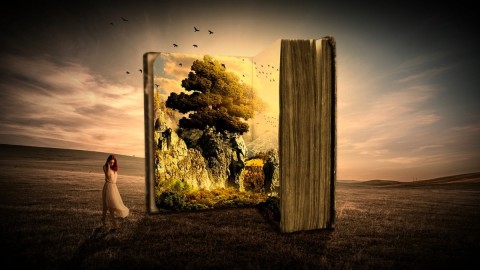Curiosity
Moreover, because curiosity makes us genuinely interested in and attentive to our practices, they will bear fruit much more quickly than if we had persevered merely out of a sense of duty. Soon we will start to get flashes of real insight, attain states of calmness and tranquility, and receive intimations of a bliss we never imagined possible. Once we start having these kinds of experiences, the ego’s resistance will be neutralized, because through them we will come to know, firsthand, the value of our spiritual path and be eager to pursue it further.
Of course, this does not mean the war as a whole has been won! On the contrary, as soon as the ego sees that continued resistance is useless, it switches gears and tries something else. The strategy it usually adopts at this juncture is to try to negotiate a compromise with the seeker. We might hear the ego say something like: “I see you’re actually beginning to enjoy these practices and find them worthwhile. Very well, but you must recognize that I have needs, too. So, here’s what I propose. We’ll set aside some nights for your reading, meditation and prayer, but you must allow me to have my fun as well. So, on other nights we’ll go out partying, or to a movie, or just kick back and watch TV. As for moral precepts, I’ll acknowledge they have their place. But we must also be realistic. After all, we still have to get by on this earthly plane, and if this means bending the rules now and then to protect our interests, then so be it. So, the deal is this: I’ll stop interfering with your spiritual life, but when it comes to minding the store of this world, you leave that to me.”
Now, at this stage of the path, most seekers are not yet spiritually strong enough to decline such an offer, and so they are forced to accept it – at least temporarily. This in itself is not a problem, and there’s no reason to feel guilt about it. The real danger lies in allowing this sort of compromise to solidify into a permanent state of affairs. If this happens, our spiritual progress will, at best, be slowed to a crawl, in which case we will probably not be able to attain Enlightenment until the time of our death. At worst, our practices may degenerate into a series of empty rites and meaningless rituals, or be abandoned altogether. Then, even the opportunity which death presents will be lost.
What we must do to insure this doesn’t happen is to begin cultivating another quality inherent in our True Nature, and that is mindfulness. Mindfulness is an expression of what we might call Consciousness’s innate Wakefulness or Clarity. Actually, this Clarity is always present, but under delusion it becomes veiled by the intensity of the ego’s dramas. By cultivating mindfulness, however, we can start to make space in our lives for this innate Clarity to shine through.
Cultivating mindfulness begins within the context of our formal practices – especially meditation. But we must also learn to cultivate mindfulness in our everyday lives. If we can maintain mindfulness in our everyday lives, then even when the ego is busily pursuing its self-centered desires, we have an opportunity to gain insights. We do this by appointing a portion of our minds to stand back as a witness who carefully observes what the actual results are when the ego has its way.
If we are vigilant in practicing this kind of mindfulness, we will soon see for ourselves that, even though the ego sometimes gets what it wants, the pleasures it derives from these things are always fleeting. And even though the ego sometimes manages to avoid the things it fears, in the end, it cannot avoid what it fears most – suffering and death. So the ego is playing a losing game, and if we continue to identify ourselves with it, in the end we, too, will lose.
Tags: Buddhist Concept Curiosity Desires Ego Recognize Ego True Nature










